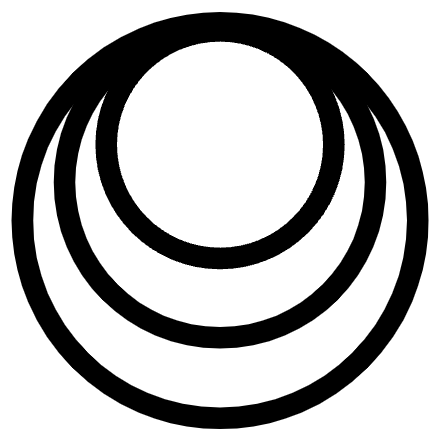From a young age, I knew that I had to express something vital and important. To prepare for that, I started carrying a notebook and pencil with me everywhere. I wrote everything that came to mind. When I was 10, I bought a tape recorder with money from my paper route, and when I was 12 I bought my first computer. My growing collection of handwritten, digital, and audio notes and journals became my most valuable possession because I believed that the answer I was looking for was in them.
The message came to me when I was walking home from school when I was 16. I had a revelation: I can know everything about everything. I rushed home to write that down and imagine what it meant.
In my adolescent mind, “knowing everything about everything” was a fascinating prospect. I pondered it deeply, and initially thought it was some sort of as-of-yet unknown atomic property that preserved information about past spatial events in a single physical location. I followed this idea into university, studying physics.
I lost faith that I would find the answers I needed in the words of dead physicists, so my mind began to roam. A self-taught programmer, I imagined it might be some sort of software application. For years I furiously scribbled notes for an “omni-functional” digital prosthetic that would serve as a “digital body”.
Around the same time I also started having deeper spiritual experiences I could not explain and made significant progress in my early 20s in the spiritual realm. I had been vehemently anti-religious from adolescence, but these moments of feeling opened my mind to alternative answers. While I liked the freedom of the spiritual to focus on aspects of my own experience the hard sciences ignored, I wanted to apply the methods of the hard sciences.
By the time I was 21 I decided that I had to leave everything to find it. I dropped out of university and set out on my own with only a backpack. By the time I was 24, I had bought a one-way ticket to Asia, where I continued my search. I eventually ended up in a small, Himalayan village, spending my days living a simple life, trying to bridge the gap between metaphysics and physics. For several years I explored metaphysics, religion, and spirituality, but struggled to find practical answers amid magical thinking, esoteric rituals, and abstract prose. And most of all, I despised the forced optimism, exaggerated kindness, and the fixation on morality and ethics to the exclusion of direct experience. I did not want to pretend; I wanted to know.
I knew the answer that would allow me to know everything about everything was right in front of me and I only had to open my eyes to it. I wanted something firm and solid that I could directly know without a doubt. But I did not want to model my behavior on celebrated prophets, saints, gurus, and philosophers I would never meet. I needed something that was here, now. Though my language was still abstract and verbose, I did reach a conclusion that would serve as the foundation of the existential anatomy I was referring to as “knowing everything about everything”: I was somehow seeing “everything” incorrectly. I had to “redefine everything”.
My search for the answer manifested in many different ways over the years. All these efforts shared one quality: they were massive in scope. My scientific aspirations were to uncover the theory of everything that everyone else had missed. My technology aspirations were to build a platform that ran every other application. And my spiritual aspirations were to bridge metaphysics, the social and natural sciences, and mathematics into a complete theory of everything.
It was all ambitious, but how could it not be if I was working against the hypothesis that I would know everything about everything? In retrospect, I can see that the same single intent was behind all these efforts, just expressed differently: I was rediscovering my omniscience.
…
